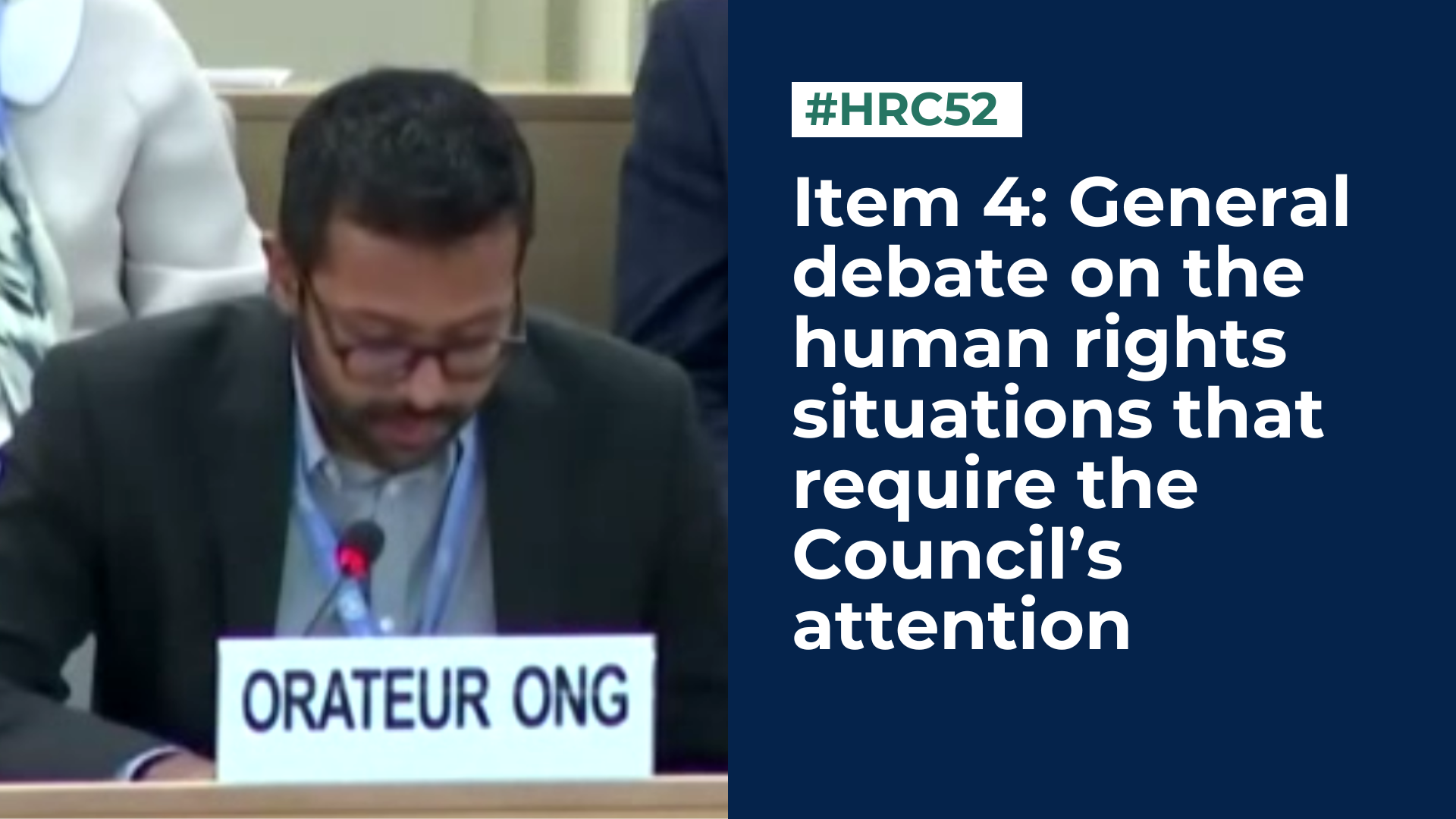52nd regular session of the UN Human Rights Council
Item 4: General debate on the human rights situations that require the Council’s attention
Joint oral statement delivered by Ahmed Adam
On behalf of Asian Forum for Human Rights and Development (FORUM-ASIA), Amnesty International, CIVICUS: World Alliance for Citizen Participation, Human Rights Watch, International Federation for Human Rights (FIDH), International Service for Human Rights, and World Organisation Against Torture (OMCT)
22 March 2023
Mr. President,
We draw the Council’s attention to the deteriorating human rights situation in India.
The recent arrest of Kashmiri journalist Irfan Mehraj by National Investigation Agency is emblematic of the ongoing pattern of repression of human rights defenders and journalists in Jammu and Kashmir under the draconian Unlawful Activities Prevention Act (UAPA). Human rights defenders Khurram Parvez and journalist Fahad Shah continue to remain in prison for charges under UAPA for their human rights work in Jammu and Kashmir.
The Indian government has also used the UAPA to prosecute human rights defenders across the country, especially those working to protect the rights of the country’s most marginalized populations, including Dalits, Muslims, and Adivasis.
Human rights organisations continue to be targeted under the Foreign Contribution Regulation Act (FCRA). India has so far refused to implement repeated recommendations by UN human rights experts, UPR and other human rights mechanisms to repeal or amend the FCRA law in line with its international human rights obligations.
Instead, India has expanded the use of federal investigating agencies such as the Enforcement Directorate and Central Bureau of Investigation, and income tax and money laundering prevention legislation to target and harass civil society organisations and independent news media.
Rising authoritarianism and systematic erosion of the rule of law and independent institutions in India have been accompanied by a sharp rise in discrimination and violence against Muslims fueled by hate speech, incitement to violence and majoritarian rhetoric, including a recent call for the ‘economic boycott’ of Muslims, by Hindu nationalist leaders with complete impunity.
We therefore call on Indian authorities to release human rights defenders, activists and journalists, including Khurram Parvez, detained under UAPA. Authorities should repeal the law, and end harassment and intimidation of human rights defenders, activists, journalists and civil society organisations, and take immediate measures to end discrimination and hate speech against minorities.
The Council must take appropriate action to prevent a further deterioration in the situation of human rights in India including potential escalation in discrimination and violence against minorities.
Thank you.




